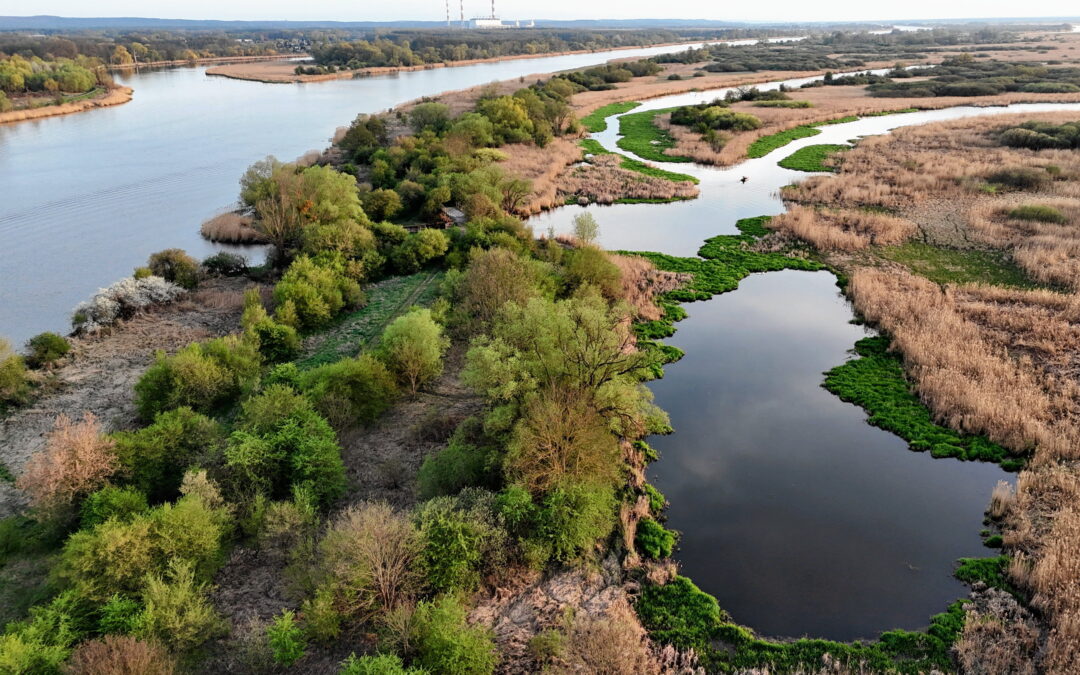Keep our news free from ads and paywalls by making a donation to support our work!

Notes from Poland is run by a small editorial team and is published by an independent, non-profit foundation that is funded through donations from our readers. We cannot do what we do without your support.
Plans to create Poland’s first new national park in 24 years have moved ahead after the proposal was approved on Thursday by the regional assembly in West Pomerania, the province where it will be located.
The park would be created in the Lower Oder Valley, an area that runs along the river marking the border between Poland and Germany. On the German side, it is already protected as a national park, whereas in Poland it currently only has the lower classification of a landscape park.
The Lower Oder Valley National Park would cover an area of 3,856 hectares around the villages of Kołbaskowo and Widuchowa as well as the city of Szczecin. It could later be enlarged by an additional area around the town of Gryfino, extending the park to a total of 6,051 hectares.
Przyroda nie ma swojego głosu. Postanowiliśmy dziś zabrać głos za nią!
Sejmik Województwa Zachodniopomorskiego właśnie poparł inicjatywę @MKiS_GOV_PL i wyraził zgodę na utworzenie Parku Narodowego Doliny Dolnej Odry. Tę historyczną decyzję poprzedziły zgody wyrażone przez… pic.twitter.com/mZpRgK2q0G
— Paulina Hennig-Kloska (@hennigkloska) May 29, 2025
The idea for creating the park has been supported by local activists in the region as well as Poland’s national government. However, it has also been criticised by the conservative opposition Law and Justice (PiS) party, which claims it could threaten commercial shipping in the Oder river.
At yesterday’s session of the West Pomerania provincial assembly, 18 representatives of the nationally ruling coalition – which ranges from left to centre right – voted in favour of the plans while nine PiS members were opposed to them.
The decision was celebrated by climate and environment minister Paulina Hennig-Kloska, whose ministry has backed the plans from the outset. Following the vote by the regional assembly, the plans now move for approval by the government and must then be confirmed by the national parliament and the president.
“The decision to establish the Lower Oder Valley National Park is a benefit for all of us, but above all for nature,” said Hennig-Kloska said after the assembly’s vote.
In a social media post, she added that a bill to create the park has already been prepared and promised she would send a request to the cabinet to proceed with the project as a priority. Her ministry hopes that the park can be established later this year.
Hennig-Kloska highlighted that the Lower Oder Valley “is an absolutely unique area that deserves protection and wise investment”. It contains one of Europe’s largest fluviogenic peat bogs and is home to 237 bird species, at least 460 types of plants, and 38 species of fish.
The government wants to establish Poland's first new national park in 23 years.
While environmentalists support the proposal, local anglers and politicians are sceptical, finds @ZenkerLuisa on a visit to the Lower Oder Valley https://t.co/OQAz2GKlnr
— Notes from Poland 🇵🇱 (@notesfrompoland) October 7, 2024
Local activists have been seeking to establish the park for three decades. Those efforts intensified after an ecological disaster in 2022 during which pollution of the Oder river caused toxic algal blooms that led to as many as half of the river’s fish dying out.
However, some local residents, including anglers, have expressed opposition to the plans while PiS has warned about the impact on shipping.
In response, the local authorities took into account concerns expressed by Poland’s state water authority and the Seaports Authority of Szczecin and Świnoujście and excluded certain areas from protection, including the Klucz-Ustowo and Gartz-Marwice channels, in order to facilitate inland navigation.
Last year's environmental disaster in the Oder river resulted from "years of inaction and mistakes" by the Polish authorities, says the state audit office.
It also found that failings in the government's response to the crisis made the situation worse https://t.co/8bsnRMzVNA
— Notes from Poland 🇵🇱 (@notesfrompoland) November 16, 2023

Notes from Poland is run by a small editorial team and published by an independent, non-profit foundation that is funded through donations from our readers. We cannot do what we do without your support.
Main image credit: Cezary Aszkielowicz / Agencja Wyborcza.pl

Agata Pyka is a former assistant editor at Notes from Poland. She specialises in Central and Eastern European affairs, cybersecurity, and investigative reporting. She holds a master’s degree in political communication from the University of Amsterdam, and her work has appeared in Euractiv, the Balkan Investigative Reporting Network (BIRN), and The European Correspondent, among others.



















